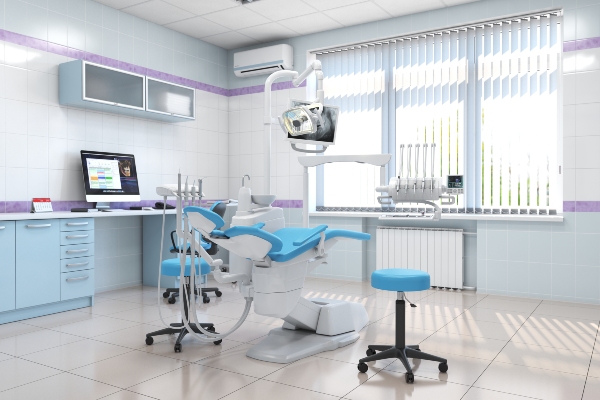Can a General Dentist Administer an Orthodontics Treatment?

Orthodontics treatments involve the alteration of the teeth, the jaws, and the soft tissues that connect the two. These alterations can improve the alignment of said teeth and jaws. The resulting aesthetic and oral health benefits of orthodontic treatment are worth the time and effort of the process.
Moving different teeth to optimal positions requires a precision that comes with experience and innate skill. Reshaping a jaw to improve its form and function also takes skill and experience. So, can a general dentist administer orthodontics?
The different faces of orthodontics
The main way that dentists create a straight, pleasant smile is with the use of gentle, constant pressure. This pushes the teeth into optimal positions at a steady yet gradual pace. As the teeth shift, the jawbone breaks down and rebuilds itself to accommodate the movement of teeth roots. Dentists often prescribe specific orthodontic appliances, like braces, headgear, and jaw expanders, to realign the teeth and jaws.
Patients with severe orthodontic problems may need a more aggressive approach. Some may need a tooth extraction to correct overcrowding. Others may need corrective jaw surgery to treat severe jaw malformation. Still others may need the installation of a temporary dental implant to put pressure on specific teeth.
Orthodontics is a wide field that caters to patients with diverse needs. As such, dental professionals who provide orthodontic treatment need one or more skill sets. Some require surgical skills, while others need to be able to plot tooth and jawbone movements over the course of treatment.
Role of the general dentist in orthodontic treatment
A general dentist offers the first-line treatment and support. They offer preventative treatments, like routine checkups and teeth cleanings, to ensure good oral health. They can detect dental and oral problems in their early stages. In most cases, the general dentist will correct simple problems with restorative dentistry or with dental procedures, like root canals. The role of a general dentist as a first-line dental health provider also allows them to provide important orthodontic treatments.
1. Detection and monitoring
Regular checkups allow a dentist to spot problems in their early stages. A general dentist can detect an emergent bad bite that results from an accident or teeth grinding. In the case of children, a general dentist will monitor the growth of both their primary and permanent teeth. If the dentist detects a bad bite, they will keep tabs on the child’s teeth until the child is old enough for further treatment. For children and adults alike, a diagnosis for orthodontic problems should be the first step of treatment.
2. In-depth diagnosis
Diagnosis starts at the detection stage. It continues with medical imaging, a tool that allows the dentist to pinpoint the root cause of their patient’s orthodontic issue. An X-ray or a CAT scan will provide information that allows the dentist to chart a course of action.
3. First-line orthodontic treatment
Some patients require simple orthodontic treatments. A general dentist with the right training can oversee teeth straightening with braces. The dentist can also extract a tooth to correct crowding. They can recommend veneers or crowns for patients who need a smile upgrade.
Let our dentist chart your journey to an improved smile
A general dentist should be your first point of contact when you seek dental care. Our dentist will perform a comprehensive evaluation that will lay the groundwork for a healthy smile. If orthodontics is the ideal treatment, the dentist will walk with you through every step.
Request an appointment here: https://pearlcity.diamondheaddentalcare.com or call Diamond Head Dental Care at (808) 214-9287 for an appointment in our Pearl City office.
Check out what others are saying about our dental services on Yelp: Orthodontics in Pearl City, HI.
Recent Posts
Family dentists are general dentists with the bonus of being able to care for all members of your family. This means we conveniently provide personalized services to protect everyone's oral health. Let us look at five popular services that can benefit all of you.The American Dental Association, or ADA, recommends that people begin receiving biannual…
Dental emergencies can happen anywhere at any time. Whether it is a broken tooth or an abscess, it is important to have access to a family dentist who provides emergency dental services. Seeing a dental professional can make all the difference between maintaining your smile and hurting your oral health. Family dentists offer comprehensive emergency…
Choosing a family dentist as your next dental provider is one of the best decisions you can make for every family member. However, there are multiple factors to take into account when asking questions. Here are a few potential questions to consider when searching for a family dentist.Most feel comfortable starting with questions about their…
A family dentist can help a house with family members of varying ages maintain healthy smiles, from young children to grandparents. However, our team understands that choosing the right dentist for your family's oral health needs is an important and sometimes overwhelming decision. Here are a few essential factors to consider when searching for a…


